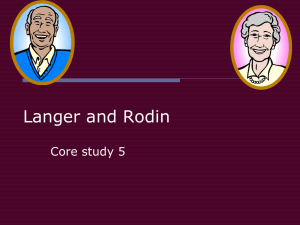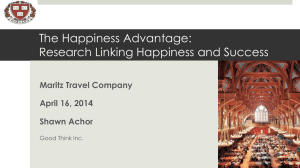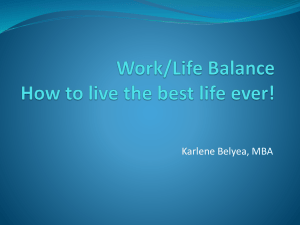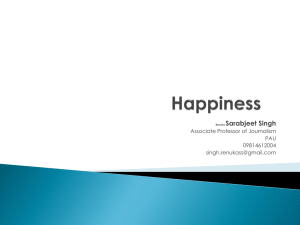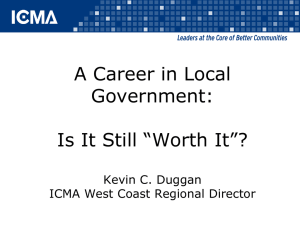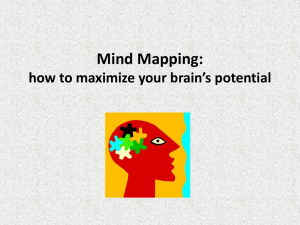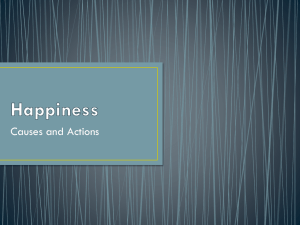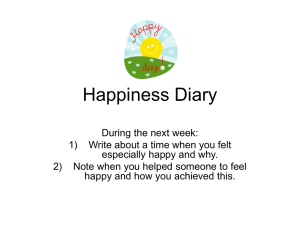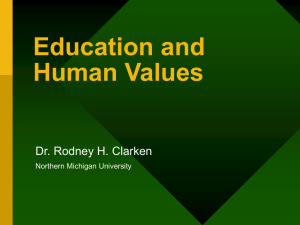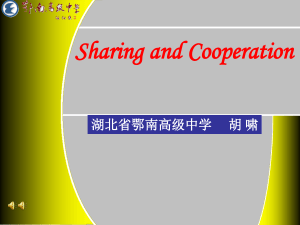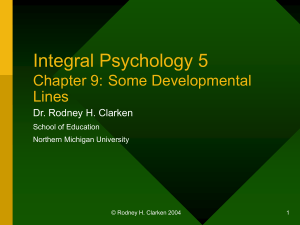Happiness-Scientific, Philosophical and Spiritual Perspective
advertisement
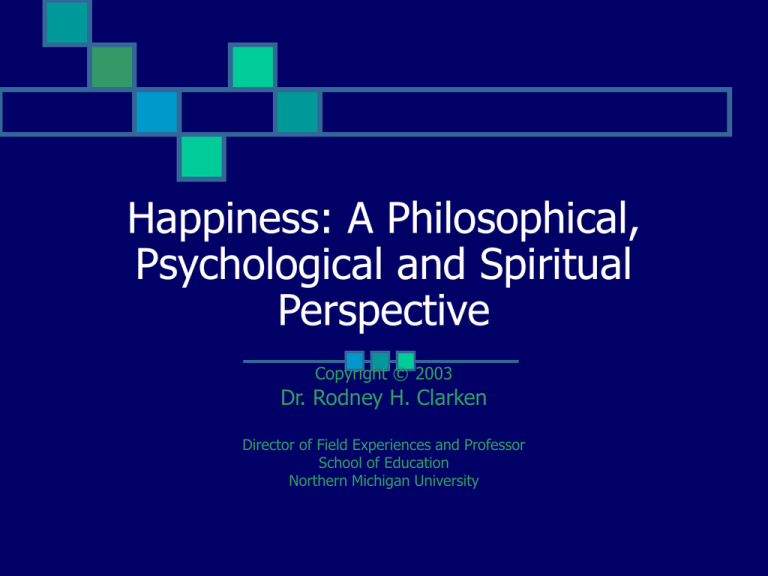
Happiness: A Philosophical, Psychological and Spiritual Perspective Copyright © 2003 Dr. Rodney H. Clarken Director of Field Experiences and Professor School of Education Northern Michigan University Goals and Objectives From a philosophic, psychological and spiritual perspective: To define happiness To explain why we want to be happy To describe how to be happy © Rodney H. Clarken 2003 2 Happiness Defined hap·py - Enjoying, showing, or marked by pleasure, satisfaction, or joy. Philosophical definitions: “pleasure conceived of as untroubledness, virtue alone or together with external goods” (The Morality of Happiness, Annas, p. 426) © Rodney H. Clarken 2003 3 Happiness Synonyms gladness, joy, delight, felicity, contentment, content, sense of well-being, pleasure, enjoyment, satisfaction, lightheartedness, rejoicing, elation, jubilation, high spirits, bliss, beatitude, blessedness, rapture, ecstasy, gaiety, exultation, transport, exuberance, merriment, cheer, cheerfulness, cheeriness, glee, jollity, mirth, gratification, blessing, comfort. © Rodney H. Clarken 2003 4 Antonyms unhappiness, sadness, sorrow, grief, woe; depression, despondency, low spirits, misery, anguish, distress, discomfort, bane, annoyance; calamity, misfortune, thorn in one's side, cross to bear. © Rodney H. Clarken 2003 5 Today’s Situation Though material benefits have increased exponentially, happiness has remained flat or decreased. The ideologies of the twentieth century that promised happiness and welfare have left us intellectually, spiritually and morally bankrupt and unhappy. © Rodney H. Clarken 2003 6 Happiness and Ancient Philosophy …the entry point for ancient ethical reflection is consideration of one's life as a whole, and reflection leads one to the notion of one's final end. Happiness enters as a thin specification of this final end. As Aristotle says, there is consensus that our final good is happiness, but this point is trivial and settles nothing, for there is intense disagreement as to what happiness consists in. (The Morality of Happiness, Julia Annas, p. 329) © Rodney H. Clarken 2003 7 Socrates and Plato "virtue and happiness were intimately related for Socrates and Plato, with wisdom a necessary and sufficient condition for behaving well and being happy. " (Parducci 10) © Rodney H. Clarken 2003 8 Aristotle’s Philosophy Aristotle said happiness: is the aim of life. results from two kinds of habits: mental activity, such as knowledge, which lead to the highest human activity, contemplation; practical action (moral virtues conforming to the golden mean) and emotion, such as courage. is attained through intellectual and the moral virtues, which results from the full realization of human potential. (Nicomachean Ethics) © Rodney H. Clarken 2003 9 The Utilitarian Definition Bentham, the founder of Utilitarianism, combined the prescriptive with the descriptive when he defined the good in terms of pleasing consequences: that action is best that leads to the greatest happiness of the greatest number. Happiness itself was defined by Bentham as a favorable balance of pleasure over pain. (Parducci 11) © Rodney H. Clarken 2003 10 Utilitarianism the supreme objective of moral action is the achievement of the greatest happiness for the greatest number. William Paley: virtue is the "doing [of] good to mankind, in obedience to the will of God, and for the sake of everlasting happiness. John Stuart Mill, Herbert Spencer, William James and John Dewey (using intelligence for happiness) were influenced by utilitarianism. © Rodney H. Clarken 2003 11 Political Philosophy We hold these truths to be self-evident, that all men are created equal, that they are endowed by their Creator with certain unalienable Rights, that among these are Life, Liberty, and the pursuit of Happiness. That to secure these rights, Governments are instituted among Men, deriving their just powers from the consent of the governed. (Declaration of Independence, 1776) © Rodney H. Clarken 2003 12 Modern Philosophy: Charlie Brown “HAPPINESS IS TWO KINDS OF ICE CREAM. KNOWING A SECRET. CLIMBING A TREE. HAPPINESS IS FIVE DIFFERENT CRAYONS. CATCHING A FIREFLY. SETTING HIM FREE. HAPPINESS IS BEING ALONE EVERY NOW AND THEN. AND HAPPINESS IS COMING HOME AGAIN. HAPPINESS IS MORNING AND EVENING, DAY TIME AND NIGHT TIME TOO. FOR HAPPINESS IS ANYONE AND ANYTHING AT ALL THAT'S LOVED BY YOU.” (Charles Shultz, “You’re a Good Man, Charlie Brown”) © Rodney H. Clarken 2003 13 HAPPINESS IS TWO KINDS OF ICE CREAM. Not really, at best two kinds of ice cream is a short-lived pleasure, and then only if you like ice cream, are not too full to eat it, not worried about gaining weight, lactose tolerant and the two kinds are ones you like (i.e., Anchovy flavored, Blue Moon and Bubble Gum). © Rodney H. Clarken 2003 14 HAPPINESS IS FIVE DIFFERENT CRAYONS. Maybe, if you are six years old and want five different crayons, they can bring some happiness and may bring some temporary joy or satisfy some desire, but not if you are 18 year old, expect a box of 64, eat them, get five colors you hate, get punished for having them, or they break or…. © Rodney H. Clarken 2003 15 FOR HAPPINESS IS ANYONE AND ANYTHING AT ALL THAT'S LOVED BY YOU. Now this is getting at a more real and lasting happiness. Happy people are loved, love, make more friends, and have a richer social life and more fulfilling relationships than unhappy people. (We do not know whether love causes happiness or happiness causes love, but, according to the latest research, being loved and loving probably will not hurt you.) © Rodney H. Clarken 2003 16 Happiness and Psychology Most of psychology has focused on unhappiness, mental illness and weakness rather than happiness, mental health and strength. Recently Positive Psychology is scientifically studying positive emotion, virtue, strengths and happiness. © Rodney H. Clarken 2003 17 Authentic Happiness Following slides adapted from Martin E. P. Seligmann, 2002. Authentic Happiness: Realizing the New Positive Psychology to Realize your Potential for Lasting Fulfillment. Simon and Schuster: New York. Summarizes and comments on the research, stories and reflections to answer questions about and deepen our understanding of happiness. © Rodney H. Clarken 2003 18 No Shortcuts The belief that we can rely on shortcuts to happiness, joy, rapture, comfort, and ecstasy, rather than be entitled to these feelings by the exercise of personal strengths and virtues, leads to legions of people who in the middle of great wealth are starving spiritually. (Seligmann, p. 8) © Rodney H. Clarken 2003 19 Positive Emotion and Character Positive emotion alienated from the exercise of character leads to emptiness, to inauthenticity, to depression, and as we age, to the gnawing realization that we are fidgeting until we die. The positive feeling that arises from the exercise of strengths and virtues, rather than from the shortcuts, is authentic. (p. 8) © Rodney H. Clarken 2003 20 Positive Psychology Draws on science, philosophy and religion to identify positive emotions, six core virtues, twenty-four signature strengths and ways of using the signature strengths in relation to work, love, and parenting. See www.authentichappiness.org for more info and self assessments. © Rodney H. Clarken 2003 21 Positive feelings lead to a longer, healthier, well-wed, and generally happier life. A study of nuns shows a very strong a positive relationship between happiness and longevity and health. pleasurable activities do not bring the gratification and positive emotion that the kind actions do. © Rodney H. Clarken 2003 22 Happiness broadens intellectual, physical and social resources and reserves that allow us to better survive and thrive. Happy people have better health habits, lower blood pressure, stronger immune systems, more productivity, richer social lives, greater empathy, higher pain endurance. They are better decision makers, more creative, quicker thinkers and outperform peers in persistence, problem solving, independence, enthusiasm and exploration © Rodney H. Clarken 2003 23 Positive emotions: Past contentment, satisfaction, fulfillment and serenity Dwelling on the past is overrated Increasing gratitude about your past, forgiving past wrongs and rewriting your past to free yourself from limiting and debilitating ideologies are beneficial to increasing present happiness. © Rodney H. Clarken 2003 24 Positive emotions: Future optimism, faith, confidence and hope. Increase optimism by recognizing and disputing pessimistic thoughts through examining the evidence, alternatives, implications and usefulness of our thoughts and how to change them as needed © Rodney H. Clarken 2003 25 Positive emotion: Present divided into two separate things and routes: pleasures and gratifications. Pleasures are limited and gratifications abiding. Use savoring, mindfulness and avoiding habituation to heighten pleasures. © Rodney H. Clarken 2003 26 Gratification results from the use of our strengths and virtues. components that indicate growth and lead to happiness and satisfaction involve challenge, concentration, goaldirectedness, total absorption, flow and the suspensions of consciousness. © Rodney H. Clarken 2003 27 Six Virtues for Gratification From the great philosophies and religions of the world: wisdom and knowledge, courage, love and humanity, justice, temperance, spirituality and transcendence. © Rodney H. Clarken 2003 28 Signature Strengths: 1-9 Wisdom and knowledge: 1. curiosity/interest in the world, 2. love of learning, 3. judgment/critical thing/open-mindedness, 4, ingenuity/originality/practical intelligence/street smarts, 5. social intelligence/personal intelligence/emotional intelligence, 6. perspective. Courage: 7. valor and bravery, 8. perseverance/industry/diligence, 9. integrity/genuineness/honesty. © Rodney H. Clarken 2003 29 Signature Strengths: 10-17 Humanity and love: 10. kindness and generosity, 11. loving and allowing oneself to be loved. Justice: 12. citizenship/duty/teamwork/loyalty, 13. fairness and equity, 14. leadership. Temperance: 15. self-control, 16. prudence/discretion/caution, 17. humility and modesty. © Rodney H. Clarken 2003 30 Signature Strengths: 18-24 Transcendence: 18. appreciation of beauty and excellence, 19. gratitude, 20. hope/optimism/future-mindedness, 21. spirituality/sense of purpose/faith/religiousness, 22. forgiveness and mercy, 23. playfulness and humor, 24. zest/passion/enthusiasm. © Rodney H. Clarken 2003 31 Religion Best Path to Happiness Religion has been seen as the best path to happiness both in this world and the next. “the Divine religions, the holy precepts, the heavenly teachings, are the unassailable basis of human happiness, and that the peoples of the world can hope for no real relief or deliverance without this one great remedy.” (Abdul-Baha, The Secret of Divine Civilization, p. 99) © Rodney H. Clarken 2003 32 Religion Opens Doors of Happiness Religion confers upon man eternal life and guides his footsteps in the world of morality. It opens the doors of unending happiness and bestows everlasting honor upon the human kingdom. It has been the basis of all civilization and progress in the history of mankind. (Abdul-Baha, The Promulgation of Universal Peace, p. 361) © Rodney H. Clarken 2003 33 Divine Law brings Happiness In this way the primary purpose in revealing the Divine Law--which is to bring about happiness in the after life and civilization and the refinement of character in this--will be realized. (The Secret of Divine Civilization, p. 46) © Rodney H. Clarken 2003 34 Religion & Eternal Happiness The concept of heaven as a place of eternal happiness is found in most religions: Nirvana for Buddhists, Happy Hunting Grounds for some Native Americans, Valhalla for Scandinavians and Germans, Paradise for Jews, Christians, Baha’is and Moslems; Elysium for classical Greeks and Romans. © Rodney H. Clarken 2003 35 Hebraic-Christian View of Happiness "Happiness is serving God, living in accordance with God's wishes as learned from holy scripture or by personal revelation. " (Parducci 11) © Rodney H. Clarken 2003 36 Beatitudes Jesus Christ promised blessedness/happiness to: the poor in spirit, those who mourn, the meek, those who hunger and thirst for righteousness, the merciful, the pure in heart, the peacemakers, those who are persecuted for righteousness’ sake. (Matt. 5:3-11) © Rodney H. Clarken 2003 37 Buddhism & Happiness Happy indeed we live who are free from: hatred among those who still hate. In the midst of hate-filled men, we live free from hatred. disease among those still diseased. In the midst of diseased men, we live free from disease. worry among those who are still worried. In the midst of worried men, we live free from worry. Happy indeed we live who have nothing of our own. We shall feed on joy, just like the radiant devas. (Dhammapada, 197-200) © Rodney H. Clarken 2003 38 Buddhism on Happiness There is no fire like desire. There is no weakness like anger. There is no suffering like the khandhas. There is no happiness greater than peace. Therefore, if he is a man of understanding and penetration, learned and habitually moral, devout and noble, one should cultivate the company of that just and wise man, in the same way as the moon keeps to a path among the stars. (Dhammapada, 202 & 208) © Rodney H. Clarken 2003 39 Egyptian Book of the Dead indicates that happiness in the afterlife was dependent on the deceased’s having led a virtuous life on earth. © Rodney H. Clarken 2003 40 Spiritual Virtues of Happiness “The honor and exaltation of every existing being depends upon causes and circumstances…the root of the exaltation of man is the good attributes and virtues which are the adornments of his reality. These are the divine appearances, the heavenly bounties, the sublime emotions, the love and knowledge of God; universal wisdom, intellectual perception, scientific discoveries, © Rodney H. Clarken 2003 41 justice, equity, truthfulness, benevolence, natural courage and innate fortitude; the respect for rights and the keeping of agreements and covenants; rectitude in all circumstances; serving the truth under all conditions; the sacrifice of one's life for the good of all people; kindness and esteem for all nations; obedience to the teachings of God; service in the Divine Kingdom; the guidance of the people, and the education of the nations and races.” (Abdul-Baha, Some Answered Questions, 77-80, 1908) © Rodney H. Clarken 2003 42 Psychological and Spiritual Virtues The virtues identified in psychological happiness are similar to those mentioned by Abdul-Baha at the beginning of the 20th century. We will compare them and then identify how spiritual virtues relate to happiness © Rodney H. Clarken 2003 43 Wisdom and knowledge (routes to wisdom, the acquisition and use of knowledge) Abdul-Baha said: universal wisdom, intellectual perception, scientific discoveries; © Rodney H. Clarken 2003 44 Courage (exercise of will to accomplish goals in the face of opposition, external or internal) Abdul-Baha said: natural courage and innate fortitude; serving the truth under all conditions; the sacrifice of one's life for the good of all people; © Rodney H. Clarken 2003 45 Love and humanity (positive interpersonal interactions) Abdul-Baha said: truthfulness, benevolence, service in the Divine Kingdom; the guidance of the people, and the education of the nations and races; kindness and esteem for all nations; © Rodney H. Clarken 2003 46 Justice (civic activities) Abdul-Baha said: justice, equity, the respect for rights and the keeping of agreements and covenants; © Rodney H. Clarken 2003 47 Temperance (protection against excesses of all sorts, appropriate and moderate expression of desires) Abdul-Baha said: rectitude in all circumstances; obedience to the teachings of God © Rodney H. Clarken 2003 48 Spirituality and transcendence (spirituality, connection to a larger entity) Abdul-Baha said: divine appearances, the heavenly bounties, the sublime emotions, the love and knowledge of God; © Rodney H. Clarken 2003 49 Virtues and Happiness You are the reality and expression of your deeds and actions. If you abide by the precepts and teachings of the Blessed Perfection, the heavenly world and ancient Kingdom will be yours-eternal happiness, love and everlasting life. (`Abdu'l-Bahá, The Promulgation of Universal Peace, p. 9) © Rodney H. Clarken 2003 50 Spiritual Perfections The body of the human world is sick. Its remedy and healing will be the oneness of the kingdom of humanity. Its life is the Most Great Peace. Its illumination and quickening is love. Its happiness is the attainment of spiritual perfections. (`Abdu'lBahá, The Promulgation of Universal Peace, p. 19) © Rodney H. Clarken 2003 51 Amity and Unity Similarly, consider how the cause of the welfare, happiness, joy and comfort of humankind are amity and union, whereas dissension and discord are most conducive to hardship, humiliation, agitation and failure. (Selections from the Writings of Abdu'lBaha, p. 287) © Rodney H. Clarken 2003 52 Service Your intention deserves a thousand praises, because you are serving the world of humanity, and this is conducive to the happiness and welfare of all. (Selections from the Writings of Abdu'l-Baha, p. 296) © Rodney H. Clarken 2003 53 Reunion with the Beloved The greatest happiness for a lover is to converse with his beloved, and the greatest gift for a seeker is to become familiar with the object of his longing; (Tablets of Abdu'l-Baha, p. 683-4) © Rodney H. Clarken 2003 54 Character …the happiness and greatness, the rank and station, the pleasure and peace, of an individual have never consisted in his personal wealth, but rather in his excellent character, his high resolve, the breadth of his learning, and his ability to solve difficult problems. (`Abdu'l-Bahá, The Secret of Divine Civilization, p. 23) © Rodney H. Clarken 2003 55 Wealth and Happiness Even this earth's happiness does not depend upon wealth.…The rich are mostly negligent, inattentive, steeped in worldliness, depending upon their means, whereas the poor are dependent upon God, and their reliance is upon Him, not upon themselves. (`Abdu'l-Bahá, The Promulgation of Universal Peace, p. 33) © Rodney H. Clarken 2003 56 Giving to Poor For although at the present time the rich enjoy the greatest luxury and comfort, they are nevertheless deprived of eternal happiness; for eternal happiness is contingent upon giving, and the poor are everywhere in the state of abject need. (`Abdu'l-Bahá, The Promulgation of Universal Peace, p. 132) © Rodney H. Clarken 2003 57 Two Kinds of Happiness Happiness consists of two kinds; physical and spiritual. The physical happiness is limited; its utmost duration is one day, one month, one year. It hath no result. Spiritual happiness is eternal and unfathomable. This kind of happiness appeareth in one's soul with the love of God and suffereth one to attain to the virtues and perfections of the world of humanity. (Tablets of Abdu'l-Baha, p. 673) © Rodney H. Clarken 2003 58 Material and Spiritual Material progress ensures the happiness of the human world. Spiritual progress ensures the happiness and eternal continuance of the soul. (`Abdu'l-Bahá, The Promulgation of Universal Peace, p. 142) © Rodney H. Clarken 2003 59 Conjoin Material and Spiritual The physical happiness of material conditions was allotted to the animal…. But the honor of the human kingdom is the attainment of spiritual happiness in the human world, the acquisition of the knowledge and love of God…. This is his real happiness and felicity. But if material happiness and spiritual felicity be conjoined, it will be "delight upon delight," (`Abdu'lBahá, The Promulgation of Universal Peace, p. 166) © Rodney H. Clarken 2003 60 Need Spiritual No matter how far the material world advances, it cannot establish the happiness of mankind. Only when material and spiritual civilization are linked and coordinated will happiness be assured. (`Abdu'l-Bahá, The Promulgation of Universal Peace, p. © Rodney H. Clarken 2003 61 Trouble If any trouble or vicissitude comes into your lives, if your heart is depressed on account of health, livelihood or vocation, let not these things affect you. They should not cause unhappiness, for Bahá'u'lláh has brought you divine happiness. (`Abdu'l-Bahá, The Promulgation of Universal Peace, p. 188) © Rodney H. Clarken 2003 62 Health and Healing We should all visit the sick. When they are in sorrow and suffering, it is a real help and benefit to have a friend come. Happiness is a great healer to those who are ill. (`Abdu'l-Bahá, The Promulgation of Universal Peace, p. 204) © Rodney H. Clarken 2003 63 Depends on Spirit The happiness of the world depends upon man, and the happiness of man is dependent upon the spirit. The world may be likened to the lamp chimney, whereas man is the light. (`Abdu'l-Bahá, The Promulgation of Universal Peace, p. 240) © Rodney H. Clarken 2003 64 Morality and Virtues Until the moral degree of the nations is advanced and human virtues attain a lofty level, happiness for mankind is impossible. (`Abdu'l-Bahá, The Promulgation of Universal Peace, p. 375) © Rodney H. Clarken 2003 65 Spiritual Comprehension May your souls be illumined by the light of the Words of God, and may you become repositories of the mysteries of God, for no comfort is greater and no happiness is sweeter than spiritual comprehension of the divine teachings. (`Abdu'l-Bahá, The Promulgation of Universal Peace, p. 459) © Rodney H. Clarken 2003 66 Prejudice an Obstacle The obstacle to human happiness is racial or religious prejudice, the competitive struggle for existence and inhumanity toward each other. (`Abdu'l-Bahá, The Promulgation of Universal Peace, p. 468) © Rodney H. Clarken 2003 67 Sociability and Happiness In his [human] life and being cooperation and association are essential. Through association and meeting we find happiness and development, individual and collective. (`Abdu'l-Bahá, The Promulgation of Universal Peace, p. 35) © Rodney H. Clarken 2003 68 Knowledge and Happiness In truth, knowledge is a veritable treasure for man, and a source of glory, of bounty, of joy, of exaltation, of cheer and gladness unto him. (Bahá'u'lláh-Tablets of Bahá'u'lláh Revealed after the Kitáb-i-Aqdas p. 50) © Rodney H. Clarken 2003 69 Freedom! Liberty! Security! There is no cause for sorrow or unhappiness anywhere; every means of happiness and enjoyment is about you, for in this human world there is no greater blessing than liberty…. Freedom! Liberty! Security! These are the great bestowals of God. (`Abdu'l-Bahá, The Promulgation of Universal Peace, p. 52) © Rodney H. Clarken 2003 70 Equality of Women and Men And let it be known once more that until woman and man recognize and realize equality, social and political progress here or anywhere will not be possible. For the world of humanity consists of two parts or members: one is woman; the other is man. Until these two members are equal in strength, the oneness of humanity cannot be established, and the happiness and felicity of mankind will not be a reality. (`Abdu'l-Bahá, The Promulgation of Universal Peace, p. 77) © Rodney H. Clarken 2003 71 Spiritual Behavior In a time to come, morals will degenerate to an extreme degree. It is essential that children be reared in the Bahá'í way, that they may find happiness both in this world and the next. If not, they shall be beset by sorrows and troubles, for human happiness is founded upon spiritual behavior. (Selections from the Writings of `Abdu'l-Bahá, p. 127) © Rodney H. Clarken 2003 72
